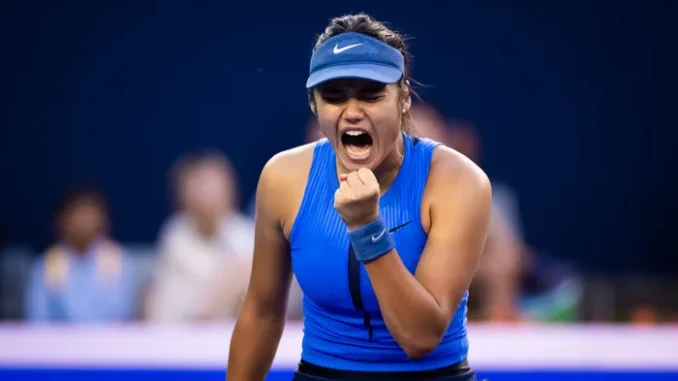
In the brutal world of professional tennis—where endless global travel pushes athletes to their breaking point and one injury can shatter ambitions—British rising star Jack Draper has become a fierce advocate for reform. The 23-year-old, sidelined by his own nagging injuries, has unleashed a fiery call for tennis governing bodies to radically reshape the punishing schedule. He warns that the nonstop grind isn’t just exhausting players—it’s slashing careers short across the board. Draper’s urgent appeal arrives amid a torrent of star-studded collapses, from Emma Raducanu’s sudden season-ending shutdown to Novak Djokovic’s shocking mid-match walkout, exposing a crisis gripping both the ATP and WTA tours.
Having fought through his own physical battles since exploding onto the scene, Draper pulled no punches in a blistering social media post. “Injuries are part of the game. We’re pushing our bodies beyond limits in elite sport,” he posted, recognizing the risks at the top level. Still, he celebrated the tour’s vibrant youth movement: “We’ve got so many amazing young players right now, and I’m thrilled to be one of them.” Yet, he insisted, survival demands change. “The tour and calendar must evolve if any of us want real longevity.” His words hit hard in a sport that runs relentlessly from the scorching Australian Open in January to the November finals, offering precious little downtime before grueling preseason ramps up. The nonstop jet lag, surface switches, and pressure-cooker matches brew a recipe for disaster, and Draper demands the ATP and WTA move past minor fixes to true transformation.
Recent shocks have supercharged Draper’s push. Consider Emma Raducanu, the 22-year-old British prodigy whose 2021 US Open triumph enchanted the world. After a stellar 2025 comeback—boasting a career-best 50 matches, 28 victories, and a surge to No. 29—she slammed the brakes on her year. Hampered by sickness and injuries during a brutal Asian swing, she skipped the Pan Pacific Open in Tokyo and Hong Kong Open to focus on healing. Humidity-sparked dizziness, soaring blood pressure, and back spasms from Wuhan and Ningbo events proved too much. “It’s rough, but recovery comes first,” she said, her determination undimmed by the setback. Raducanu’s plight mirrors a women’s tour epidemic, with Naomi Osaka, Daria Kasatkina, Elina Svitolina, and Paula Badosa all battling burnout and breakdowns this season.
The men’s tour tells a similar tale, even for ageless titan Novak Djokovic. The 38-year-old Serb, with 24 Grand Slams to his name, retired hurt from his third-place match against Taylor Fritz at the Six Kings Slam—a brutal signal that no one escapes the calendar’s toll. Djokovic’s exit, paired with 22-year-old Holger Rune’s devastating Achilles tear forcing him out of the Nordic Open, underscores the peril. Rune’s emotional post-match words captured the pain: “These weeks have been brutal—I pushed way too far.” These aren’t flukes; they’re fallout from slower courts, denser balls, and marathon rallies that turn every week into a war of attrition.
Draper’s rallying cry has struck a chord. World No. 4 Taylor Fritz, no stranger to the tour’s brutality, fired back in full agreement: “Spot on. Injuries and burnout are worse than ever.” He added, “Slower balls, courts, and conditions make the weekly load insanely tougher on the body.” This top-tier solidarity fuels a swelling reform campaign. Ideas abound: trim the season, mandate off-weeks, or tweak formats for better recovery. Legends and experts agree that while tennis’s round-the-clock drama drives its popularity, safeguarding players is essential to keep the stars shining.
Ultimately, Draper’s fight is for tennis’s soul—nurturing the next wave of wonders like himself, Rune, and WTA phenoms to spark rivalries eclipsing the Big Three’s heyday. Without bold shifts, that spark could burn out too soon. As Draper heals and eyes his comeback, his message blares like an alarm: Tennis isn’t only about trophies and triumphs; it’s about letting warriors finish the race unbroken. With leaders facing mounting heat, the next few months could spark real change. Will they heed the call? For legends like Djokovic and hopefuls like Raducanu, the sport’s destiny teeters on the edge. In a game built on grit, the system must prove its own.
Leave a Reply